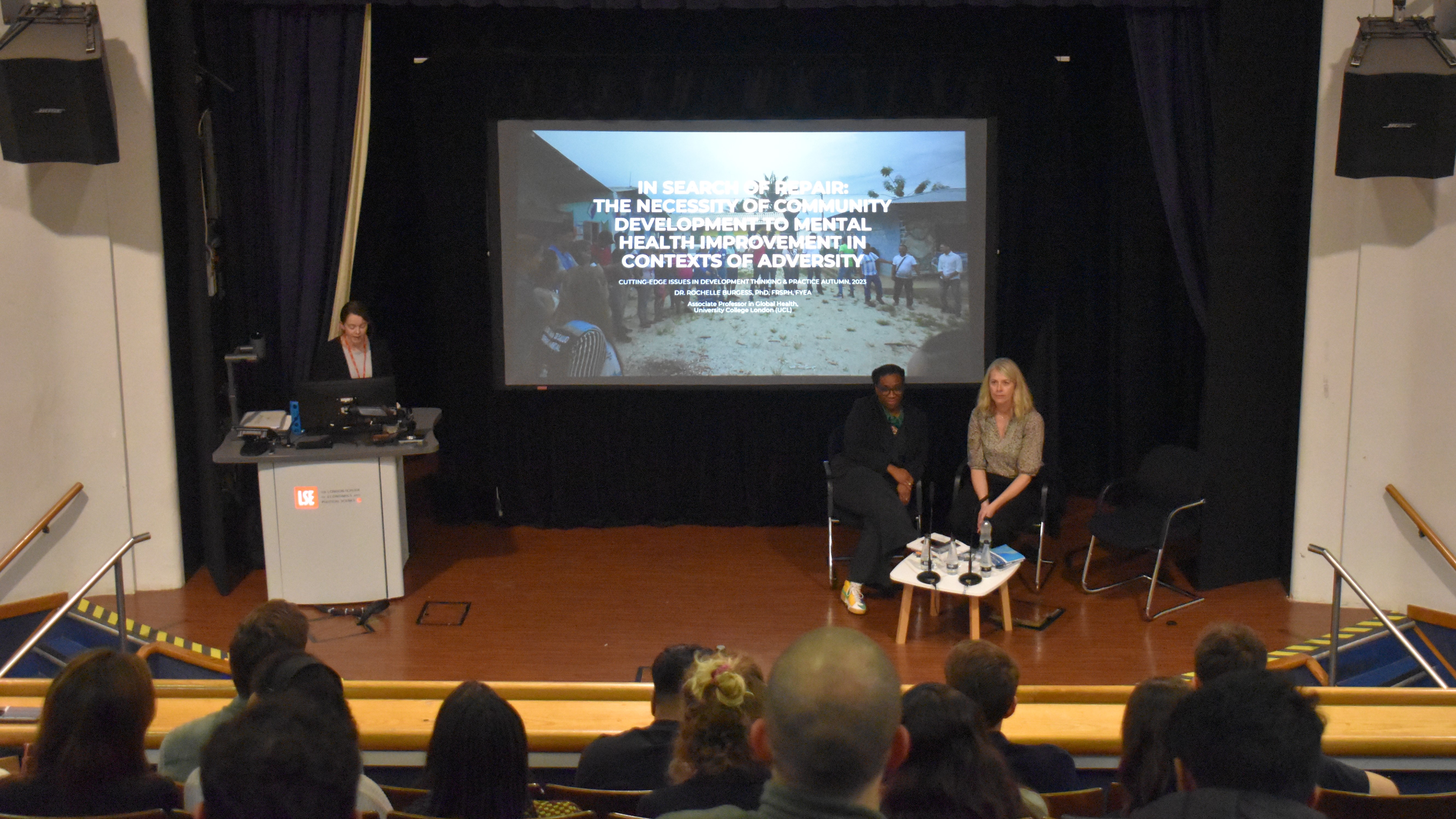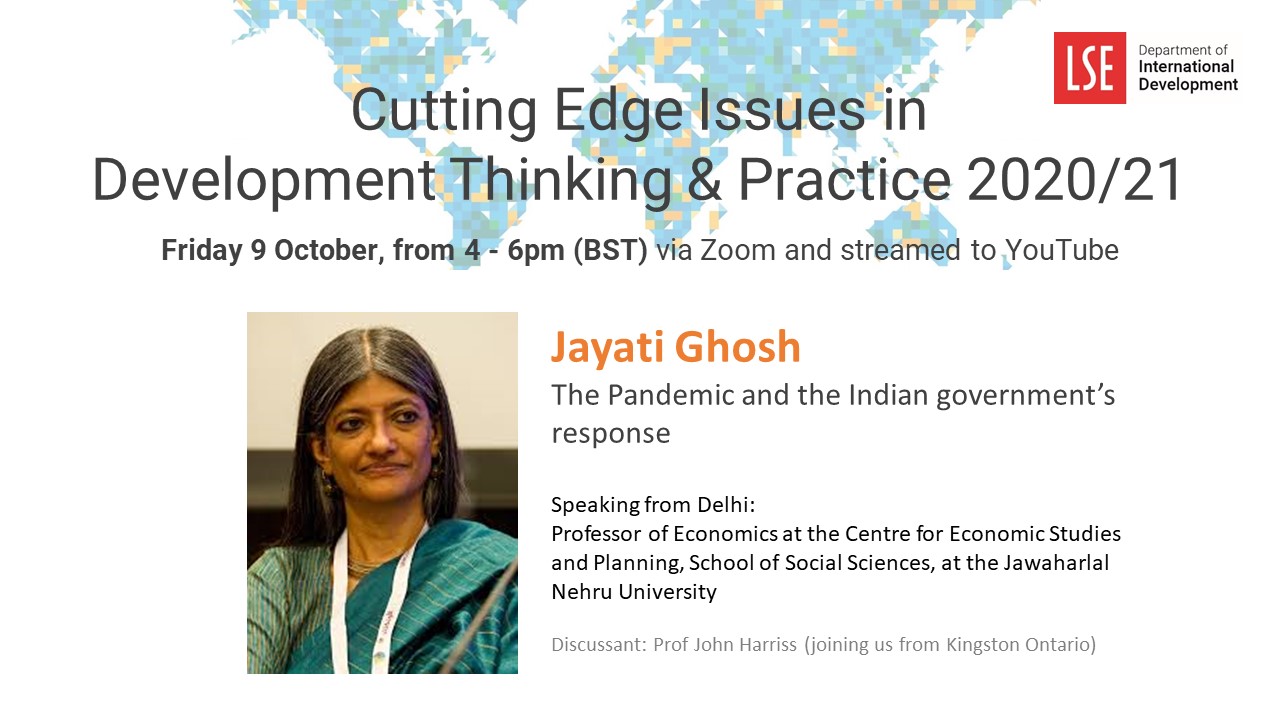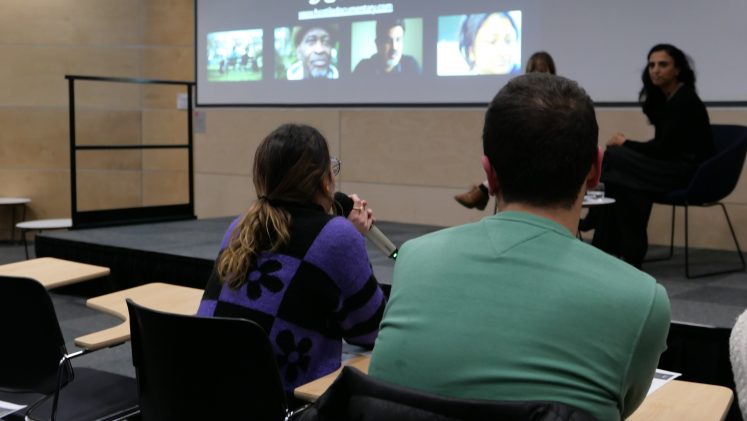In a post for ID Careers Month 2021 (12-30-April), PhD student in the Department Eduardo Mercadante shares insight into his experience so far of pursuing an academic career in International Development.
When I decided to join the Economics of Innovation Research Group instead of doing internships at companies, two years into my undergraduate course, it was due to a feeling that I wanted to be a researcher. As sure as I might have sounded back then, nowhere in my mind did I think I was going down a path that would lead to being a PhD student at LSE. Now I cannot see myself on any other journey.
In the last year of my BA in Economic Sciences at the Federal University of Rio de Janeiro (UFRJ), in Brazil, I was still unsure about my future. That was until Prof. Kenneth Shadlen, from the International Development of LSE, visited my university to present a paper. Not only did his paper inspire my bachelor’s monograph, it also shaped my academic and life goals. The next step was to get my MA in Public Policies, Strategies and Development at UFRJ. Meanwhile, I started building a curriculum with papers, book chapters, seminars, and conference presentations. The final stage was applying for the MRes/PhD in International Development at LSE under Ken’s supervision in hopes of establishing a broader research partnership. It brings me immense joy to say that I have accomplished this mission and now I am a PhD student at LSE and work as Ken’s research assistant.
From my research internship to my PhD thesis, I have always been studying pharmaceutical patenting in developing countries. My desire is to understand the public policy tools and objectives, striving for a more inclusive, dynamic, and sustained socio-economic development. Luckily, I have already begun to build a substantial and impactful body of work, with considerable assistance from UFRJ and now LSE. As any academic would understand, Impostor Syndrome might kick in when the biggest newspaper in Brazil asks LSE for a specialist to interview and is directed to you. However, I can fight this fear now that I have started making real-life changes, with some of my academic work being used in the Brazilian Supreme Court’s decision to reform patent law, improving access to health, and promoting innovation. Talk about impact factors.
This journey has not been without its bumps. Financial and bureaucratic issues relating to immigration, moving alone across the globe to London, and living expenses almost ended this journey prematurely. If there is one recommendation I can give future applicants, it is to carefully read all documents and advice available about the course, the application, translated documents, immigration bureaucracy, and general costs in this entire process.
Not to mention this thing called the COVID-19 pandemic. Living alone for months in a student hall flat during British summer with too many course assessments and thesis deadlines might be the craziest thing I have ever done. It even sounds crazy to look back and remember the dance parties by myself and basically living at the window so I could see, rarely, people walking outside. I can honestly say that without the best friend I was fortunate to find in London, and the online support from family, friends, and my supervisor, I would have given up on my dream and gone back home to Rio. My experience with COVID-19 was much lighter than most, and it does not even impact my thesis. Nonetheless, I have learned that no one truly knows the personal challenges someone is facing and how helpful just checking in can be.
In hindsight, these bumps make me even more passionate about my work. They give me a bigger drive to strive for my aspirations. I have learned to find in the challenges new goals to achieve, and also to give myself the validation we all need. It takes a while to accept that you are good enough for your own dreams. Without a doubt, choosing to do a PhD in International Development at LSE was one of the best decisions I have made. I can only see my life growing from here, with real-life impact in public policy always in sight.
You can read about the citation of Eduardo’s research in a case in Brazil’s Supreme Court on extending pharmaceutical patent periods to help fight the COVID-19 pandemic here.
The views expressed in this post are those of the author and in no way reflect those of the International Development LSE blog or the London School of Economics and Political Science.





